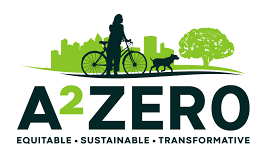The Washtenaw Health Initiative Opioid Project is hosting its second county-wide Opioid Summit from 9:00 a.m. – 3:30 p.m. on Tues., Oct. 1 at the Washtenaw Community College Morris Lawrence Building, 4800 East Huron River Drive in Ann Arbor.
This year’s summit focuses on reducing stigma around addiction and recovery with keynotes by Adreanne Waller, the epidemiologist behind the Washtenaw County Health Department’s opioid reports, and Rob Stephenson, director of the Center for Sexuality and Health Disparities at the University of Michigan, as well as breakout sessions around medication assisted treatment delivery, pain management alternatives, naloxone, peer recovery, and more. Sessions are free and lunch and refreshments will be provided. RSVP to attend.
Waller will share data about the opioid epidemic in Washtenaw County and across the state, and will describe new findings regarding the link between trauma and opioid poisonings. Her presentation, “The opioid epidemic as a lamp post: Trauma and beyond-physical pain management,” was developed in collaboration with the Washtenaw Recovery Advocacy Project (WRAP), a recovery community organization. Waller says that “lived experience and the narratives of people in active addiction and recovery” guided the research, analysis, and findings she will share.
Stephenson’s presentation, “Understanding stigma as a barrier to care,” will discuss the negative impact of stigma on the dual epidemics of HIV risk and substance use and will describe interventions that have been developed to overcome stigma as a barrier to treatment and recovery. The full summit agenda can be found on the Washtenaw Health Initiative Opioid Project website.
WHI Opioid Project co-chairs — Washtenaw County Health Officer Jimena Loveluck and Community Mental Health Partnership of Southeast Michigan (CMHPSM) Clinical/SUD Services Director Nicole Adelman — will also publicly unveil community-wide recommendations to address five key gaps in services and systems that are contributing to overdoses and deaths in Washtenaw County. Washtenaw County Sheriff Jerry Clayton will also share remarks.
“We’re excited to share the progress that has been made in creating a coordinated community response to the opioid crisis,” says Loveluck. “By highlighting the recommendations we have developed to address identified gaps, we hope to rally our colleagues to enhance efforts to prevent opioid use disorders and overdose deaths in Washtenaw County.”
“We look forward to highlighting the reduction of stigma at this summit as a focus of our overall community response,” says Adelman. “Stigma around opioid use, and addiction in general, is universal and must be addressed to truly begin to confront the issue. It is something we can all work on personally and professionally, individually and community-wide.”
In 2018, Washtenaw County saw 81 opioid-related deaths. Each week from January through May of 2019 approximately 11 county residents experienced overdoses; twenty-seven of these individuals died. More Washtenaw County opioid data can be found on the Washtenaw County Health Department website.
Five breakout sessions will be offered in the morning, and repeated in the afternoon:
- Medication Assisted Treatment Delivery in Different Settings, facilitated by Amy Bohnert, co-director of the Mental Health Innovation, Services, and Outcomes Program at the University of Michigan.
- Pain Management Strategies, facilitated by Carrie Rheingans, Washtenaw Health Initiative project manager and Center for Health and Research Transformation community implementation manager.
- Harm Reduction and Naloxone Training, facilitated by Thaddeus Jabzanka, care manager in the Complex Care Management Program under the Population Health Office at Michigan Medicine.
- Primary Prevention through Empowering Youth, facilitated by Chardae Korhonen, engagement program manager at Ozone House and Alex Alaniz, administrative coordinator for The Neutral Zone.
- Recovery Pathways and Peer Recovery Panel, facilitated by Matthew Hill, a certified peer recovery coach and program manager of the Washtenaw Recovery Advocacy Project.
In the afternoon, attendees will hear a personal recovery story from a community member with lived experience. Dawn Blackburn is vice president of the Washtenaw County Chapter of Families Against Narcotics. As a nurse in women’s and children’s health for more than 25 years, Dawn worked firsthand with families and infants affected by addiction and has a daughter in long-term recovery from heroin addiction.
Representatives from a number of local organizations will be on-hand to share resources and answer questions including: Ann Arbor Comprehensive Treatment Center, Community Mental Health Partnership of Southeast Michigan, Dawn Farm, Families Against Narcotics Washtenaw Chapter, Home of New Vision Washtenaw Recovery Advocacy Project (WRAP), Livingston County Community Alliance (which will bring its Big Red Barrel for safe disposal of opioids), Michigan Opioid Collaborative, Ozone House, St. Joseph Mercy Health Greenbrook Recovery Center, Unified HIV Health and Beyond, University of Michigan Injury Prevention Center, Washtenaw County Community Mental Health, Washtenaw County Health Department, Washtenaw County Public Safety and Mental Health Millage, and Washtenaw County Sheriff’s Office.
The Washtenaw Health Initiative Opioid Project is a volunteer coalition that brings together people from across Washtenaw County to end the opioid misuse and overdose epidemic in our community. Opioid summit sponsors include Community Mental Health Partnership of Southeast Michigan, Michigan Medicine, Washtenaw Community College, Washtenaw County Health Department, and the Washtenaw Health Initiative.
Follow along with #WashtenawOpioid.








